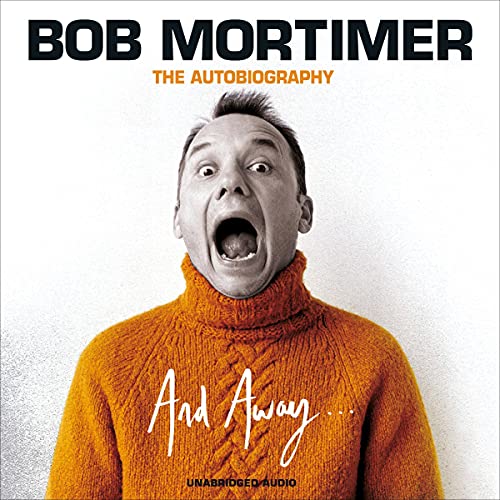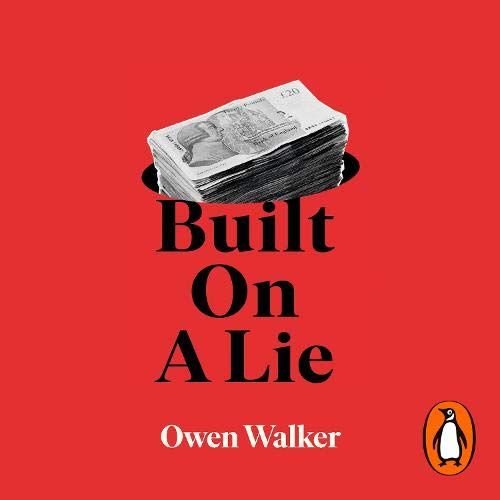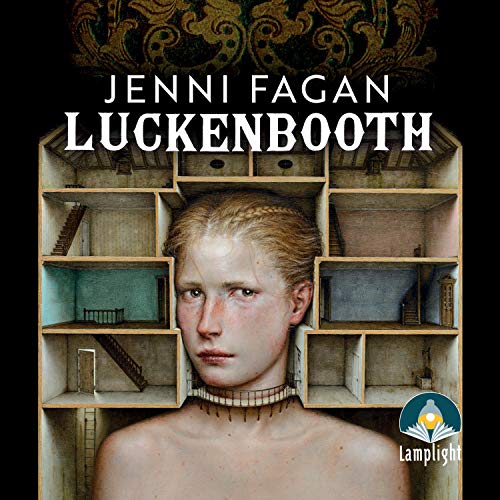The Top 5

And Away… by Bob Mortimer
As was the case in 2020, my favourite book of the year was an autobiography; this time by national treasure Bob Mortimer. Laugh out loud funny in many places, elsewhere this is tinged with melancholy and the realisation that, for all his on-screen tomfoolery, Mortimer is an incredibly shy individual. Touching, contemplative, warm and kind throughout, there is plenty of food for thought here regarding how we ought to live our lives and interact with those around us. I heartily recommend the audiobook, narrated by the great man himself.

Boy Parts by Eliza Clark
This is a bit of a cheat, as I read this book in a couple of short days at the back end of 2020, in that weird downtime period between Christmas and New Year, at the recommendation of my good friend and erstwhile luncheon companion Stephanie. I haven’t read much fiction in recent years (only one novel made it on to last my annual round up last year) and tend to gravitate towards authors who are white male Boomers or Gen X. Eliza Clark made me realise what I had been missing – new generations of writers from different backgrounds with contemporary stories to entertain me.
Boy Parts is a whirlwind ride – smart, funny, stylish and cinematic – that was genuinely unputdownable (except for the moments when I had to Google some unfamiliar terms, none of which I am going to repeat here). I’m grateful to this title for reawakening my interest in contemporary fiction and broadening my horizons, and hope that further novels from Eliza Clark will soon be forthcoming.

Built on a Lie: The Rise and Fall of Neil Woodford and the Fate of Middle England’s Money by Owen Walker
One of the nice features of an Audible subscription is the ability to return any titles that you can’t get into. When I tapped the play icon at the start of this nine hour book about the collapse of Neil Woodford’s asset management company, I half-anticipated availing myself of that option shortly afterwards, as it had the potential to be quite dry and boring. But to my pleasant surprise, I found it to be one of the more gripping books that I listened to in 2021.
The journalistic style and chronological telling of a too-good-to-be-true business story gone bad reminded me of John Carreyou’s 2019 Bad Blood, about Elizabeth Holmes and the collapse of Theranos. I also felt that Walker’s clear and patient explanations of the inherent failings of the Woodford funds offered insights into risks to be aware of when managing my own (much smaller) personal investment portfolio.

Luckenbooth by Jenni Fagan
I loved the style and structure of this darkly gothic novel. Centred around an accursed Edinburgh tenement, it consists of nine intertwined stories covering different decades and different levels of the building. Stories within the storeys, if you will. This won’t be everyone’s cup of tea, but I found it to be evocative, gritty and thoroughly entertaining.

Should We Stay or Should We Go by Lionel Shriver
The married protagonists of this satire make a pact to commit suicide together aged 80. There follow many alternative scenarios wherein the couple do or don’t go through with this plan, and different political, economic, scientific and cultural situations arise. Some of these are all too believable, whilst others are stretched to the point of absurdity, as is to be expected from any good satire.
A Brexit subplot and Covid backdrop gave this a contemporary spin, making it an easy pick for one of my books of 2021.
The Best of the Rest
A World Without Email: Reimagining Work in the Age of Overload by Cal Newport
One of those books that you’d love your bosses or clients to read. Having worked wholly remotely since March 2020, and as part of a geo-distributed team for countless years before then, I find myself constantly plugged into what Newport accurately calls the “Hyperactive Hive Mind” approach to modern knowledge work. His argument is that real-time communication tools like Slack and Email serve to distract us and rob us of the opportunity to focus deeply and achieve truly meaningful productivity.
Split into two sections, this book first explores the case against such tooling, before secondly offering a series of principles and processes for how to rise above the noise and regain more structured and productive workflows. I read this book early in 2021 and appreciated greatly the valuable tactics and strategies it offers.
Crossroads: In Search of the Moments that Changed Music by Mark Radcliffe
This summer I tried (and failed) for a second time to read Yeah Yeah Yeah – The Story of Modern Pop by St Etienne’s Bob Stanley. It seems like the kind of book that in theory I ought to like, but in practice I find it too comprehensive, worthy, and academic to be enjoyable. Perhaps I should skim through to the bits about the bands I care for.
Conversely, I found Crossroads: In Search of the Moments that Changed Music to be exactly the kind of music literature that floats my boat. It is packed with information, but delivers this with a fast-paced warm-hearted anecdotal style, much as you might expect from listening to Radcliffe speaking on the radio between records.
Four Thousand Weeks: Time And How To Use It by Oliver Burkeman
I have read very many traditional productivity books in my life. Getting Things Done, Seven Habits of Highly Effective People, Get Everything Done and Still Have Time To Play, you know the kind of thing. This book isn’t one of those. It steps back from that hamster-on-a-wheel design for life, and instead suggests that you should embrace the limitation of a finite lifespan, choosing to recognise the impossibility of achieving everything and hence refocussing on what is genuinely worthwhile.
How Not To Be Wrong: The Art of Changing Your Mind by James O’Brien
The less arrogant and more contemplative sequel to How To Be Right, this sees O’Brien think again and encourage us to consider the reasons that we might hold the opinions that we do.
How to Make the World Add Up: Ten Rules for Thinking Differently About Numbers by Tim Harford
My favourite statistics book of the year! At a time when we are bombarded more than ever by information and misinformation of huge importance to our lives, this offers some essential advice for how to cut through the noise and our own biases and interpret statistics dispassionately.
Klara and the Sun, and Never Let Me Go by Kazuo Ishiguro
I had been intending to read an Ishiguro novel for some time, so when his new novel Klara and the Sun was published in 2021, I took that as my cue to finally do so, and followed it shortly afterwards with Never Let Me Go.
Both novels had a superb pace and economical use of words that made the story flow effortlessly, pulling me along as if I were drifting around a lazy river on a rubber ring. The subject matter of both novels also touched on what it means to be human, which seems to be a recurring theme in my favoured reading material.
Let Us Dream: The Path to a Better Future by Pope Francis
Not my usual kind of read (being non-Catholic), but I felt drawn to this title during those long, dark, cold days of the third UK COVID lockdown at the start of 2021. Francis offered much comfort and hope at a bleak time, and also espoused visions and policies that struck me as being more enlightened and progressive than I had expected. Thoughtful, insightful, hopeful.
Luster by Raven Leilani
A debut novel about a Black woman in her twenties who gets involved with a forty-something white man in an open relationship. This was another of the young(-er than me) female writers that I felt compelled to read following my enjoyment of Boy Parts. The relationships described in the novel are complex and nuanced, in particular the protagonist’s relationship with her lover’s Black 12-year-old adoptive daughter.
Milk Fed by Melissa Broder
Food, sex, religion, and then some more food for good measure. The eating scenes in this novel about a Jewish lesbian with body dysmorphia felt like far guiltier pleasures than the sex scenes ever could be. A fascinating exploration of hunger, desire and faith.
The Rules of Living Well by Richard Templar
I am a sucker for Richard Templar’s “Rules” series of books with their bite-sized advice on how to approach Life, Wealth, Work, Management, Love, and more. This “..Living Well” volume was published at an apposite time, when lockdowns and the covid pandemic have made many of us reconsider what is truly important in life and how to look after our mental and physical health.
Small Data: The Tiny Clues that Uncover Huge Trends by Martin Lindstrom
This book sat unopened on my Kindle for five years since I bought it in June 2016 before I read it on a sun lounger in a couple of days during the August of 2021. I shouldn’t have waited so long.
Lindstrom is a brand consultant who eschews Big Data and the soulless inferences it produces, in favour of more traditional anthropological research methods – talking to the natives in various target markets throughout the world to understand what really makes them tick. There are many interesting and insightful case studies included here, with chapter titles such as “Fanning Desire: How Siberian Refrigerator Doors and a Saudi Arabian Mall Created a Revolutionary Website for Russian Women” and “The United Colors of India: Selling Breakfast Cereals to Two Generations of Warring Women”.
Software Engineering at Google: Lessons Learned from Programming Over Time curated by Titus Winters, Tom Manschreck and Hyrum Wright
I figure that I’m allowed one tech book in my annual round-up, right?
This is an easy-going and varied collection of essays about how things are done at Google (mostly strictly technical things, but also softer things such as achieving a diverse workforce). As such, it offers useful insights for those of us who work on supposedly large-scale technical projects to judge ourselves against.
Of course in truth, most of us will never work on systems with nearly so many users as Google, so it would be madness for us to, say, develop our own bespoke source control system or automated build tooling. But that doesn’t prevent this from being an interesting read. And some of the principles described, such as Hyrum’s Law, are well worth knowing.
This is Going to Hurt: Secret Diaries of a Junior Doctor by Adam Kay
A highly engaging set of diaries from Kay’s time as a junior doctor in the NHS, this is one of the better “secret diary of…” books that seem to be en vogue in recent years. Very funny, frequently heartbreaking, and generally politically maddening, this book offered some eye-opening insights into the true nature of a very difficult career path.
